第38章 THE FOURTH(11)
"It's made many of us keen for all our lives," he remarked, "all that clemming for education.Why! I longed all through one winter to read a bit of Darwin.I must know about this Darwin if I die for it, I said.And I couldno' get the book."Hatherleigh made an enthusiastic noise and drank beer at him with round eyes over the mug.
"Well, anyhow I wasted no time on Greek and Latin," said Chris Robinson."And one learns to go straight at a thing without splitting straws.One gets hold of the Elementals."(Well, did they? That was the gist of my perplexity.)"One doesn't quibble," he said, returning to his rankling memory of Denson, "while men decay and starve.""But suppose," I said, suddenly dropping into opposition, "the alternatve is to risk a worse disaster--or do something patently futile.""I don't follow that," said Chris Robinson."We don't propose anything futile, so far as I can see."6
The prevailing force in my undergraduate days was not Socialism but Kiplingism.Our set was quite exceptional in its socialistic professions.And we were all, you must understand, very distinctly Imperialists also, and professed a vivid sense of the "White Man's Burden."It is a little difficult now to get back to the feelings of that period; Kipling has since been so mercilessly and exhaustively mocked, criticised and torn to shreds;--never was a man so violently exalted and then, himself assisting, so relentlessly called down.
But in the middle nineties this spectacled and moustached little figure with its heavy chin and its general effect of vehement gesticulation, its wild shouts of boyish enthusiasm for effective force, its lyric delight in the sounds and colours, in the very odours of empire, its wonderful discovery of machinery and cotton waste and the under officer and the engineer, and "shop" as a poetic dialect, became almost a national symbol.He got hold of us wonderfully, he filled us with tinkling and haunting quotations, he stirred Britten and myself to futile imitations, he coloured the very idiom of our conversation.He rose to his climax with his "Recessional," while I was still an undergraduate.
What did he give me exactly?
He helped to broaden my geographical sense immensely, and he provided phrases for just that desire for discipline and devotion and organised effort the Socialism of our time failed to express, that the current socialist movement still fails, I think, to express.The sort of thing that follows, for example, tore something out of my inmost nature and gave it a shape, and I took it back from him shaped and let much of the rest of him, the tumult and the bullying, the hysteria and the impatience, the incoherence and inconsistency, go uncriticised for the sake of it:--"Keep ye the Law--be swift in all obedience--Clear the land of evil, drive the road and bridge the ford, Make ye sure to each his own That he reap where he hath sown;By the peace among Our peoples let men know we serve the Lord!"And then again, and for all our later criticism, this sticks in my mind, sticks there now as quintessential wisdom:
The 'eathen in 'is blindness bows down to wood an' stone;'E don't obey no orders unless they is 'is own;'E keeps 'is side-arms awful: 'e leaves 'em all about An' then comes up the regiment an' pokes the 'eathen out.
All along o' dirtiness, all along o' mess, All along o' doin' things rather-more-or-less, All along of abby-nay, kul, an' hazar-ho, Mind you keep your rifle an' yourself jus' so!"It is after all a secondary matter that Kipling, not having been born and brought up in Bromstead and Penge, and the war in South Africa being yet in the womb of time, could quite honestly entertain the now remarkable delusion that England had her side-arms at that time kept anything but "awful." He learnt better, and we all learnt with him in the dark years of exasperating and humiliating struggle that followed, and I do not see that we fellow learners are justified in turning resentfully upon him for a common ignorance and assumption....
South Africa seems always painted on the back cloth of my Cambridge memories.How immense those disasters seemed at the time, disasters our facile English world has long since contrived in any edifying or profitable sense to forget! How we thrilled to the shouting newspaper sellers as the first false flush of victory gave place to the realisation of defeat.Far away there our army showed itself human, mortal and human in the sight of all the world, the pleasant officers we had imagined would change to wonderful heroes at the first crackling of rifles, remained the pleasant, rather incompetent men they had always been, failing to imagine, failing to plan and co-operate, failing to grip.And the common soldiers, too, they were just what our streets and country-side had made them, no sudden magic came out of the war bugles for them.Neither splendid nor disgraceful were they,--just ill-trained and fairly plucky and wonderfully good-tempered men--paying for it.And how it lowered our vitality all that first winter to hear of Nicholson's Nek, and then presently close upon one another, to realise the bloody waste of Magersfontein, the shattering retreat from Stormberg, Colenso--Colenso, that blundering battle, with White, as it seemed, in Ladysmith near the point of surrender! and so through the long unfolding catalogue of bleak disillusionments, of aching, unconcealed anxiety lest worse should follow.To advance upon your enemy singing about his lack of cleanliness and method went out of fashion altogether! The dirty retrogressive Boer vanished from our scheme of illusion.